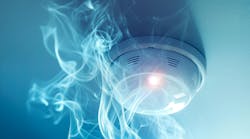Household connectivity is growing rapidly with more and more electronic devices and networks within the home distributing and using digital information and media. In addition, remote control of lighting, heating, appliance-use and security systems attached to the home are making the “digital home†a reality. Given the various technologies involved, International Standards that enable interoperability and security are seen as key to bringing value and versatility to consumers, making possible the use of diverse products, services and sources, and therefore accelerating market development.
This was the key conclusion of a successful World Standards Cooperation* (WSC) workshop bringing together some 100 experts from industry, the academic community and standards developing organizations, in Geneva, Switzerland, on 2 and 3 February 2006.
The event provided an overview of the technologies as well as an examination of standards that address access, services, performance, quality of service (QoS), electromagnetic interference, digital rights management (DRM), security issues and overall networking.
Representatives from more than 15 leading industry groups, such as DNLA, DSL Forum and Zigbee, called for closer cooperation between the WSC partners, standards developing organizations (SDOs) and industry consortia. They also agreed that similar events designed to allow for the open exchange of ideas should be held in the future, in view of improving coordination and avoiding duplication of work.
Opening the two-day event, IEC General Secretary Aharon Amit said that the market, innovation, safety and regulation and competition drive International Standards. Chief technical officers, he said, were the best-placed people to decide what is needed and when and this allows the IEC to do its work. In short, Mr. Amit said, “we’re seeking guidance from you on what we’re doing, what we’re doing well, what we’re not doing well and what we should be doing.â€
The two-day program of the workshop reviewed the current state-of-the-art in home digital technology from the standardization perspective. Representatives from 14 leading electronics manufacturers, 10 leading systems service providers, academics and standards bodies examined the situation and needs for standards in relation to:
- Ways in which digital services are delivered to the home;
- In-home networking;
- How content is managed;
- How equipment is managed;
- Best practices.
Emphasis was placed on trends concerning broadband technologies, the way to ensuring connectivity and interoperability of devices within home networks and on the development of many new application areas – for example, ways in which recent technology can offer non-intrusive monitoring of those with diagnosed medical conditions, or of the elderly.
In his closing remarks, ISO Secretary-General, Alan Bryden indicated that: “At the recent World Economic Forum in Davos, convergence of information and communication technologies and services for the benefit of consumers was highlighted as a key development, as well as a manifestation of the knowledge revolution, at the centre of the 'creative imperative'â€. He added that “International Standards have a major role to play†and – referring to the work of IEC, ITU and ISO – “we, ourselves need to convergeâ€.
Houlin Zhao, Director, Telecommunication Standardization Bureau (TSB), ITU, wrapped up the workshop by reminding delegates of the history of successful cooperation between IEC, ITU and ISO. The three organizations, he said, are committed to promoting and harmonizing the international standardization system, strengthening cooperation among themselves and with all partners concerned. He encouraged the members of the three organizations to support efforts at the international level, as well as the national and company level.
The World Standards Cooperation (WSC) is an initiative that aims to reinforce, and promote the voluntary consensus based International Standards system of ISO, IEC and ITU.

